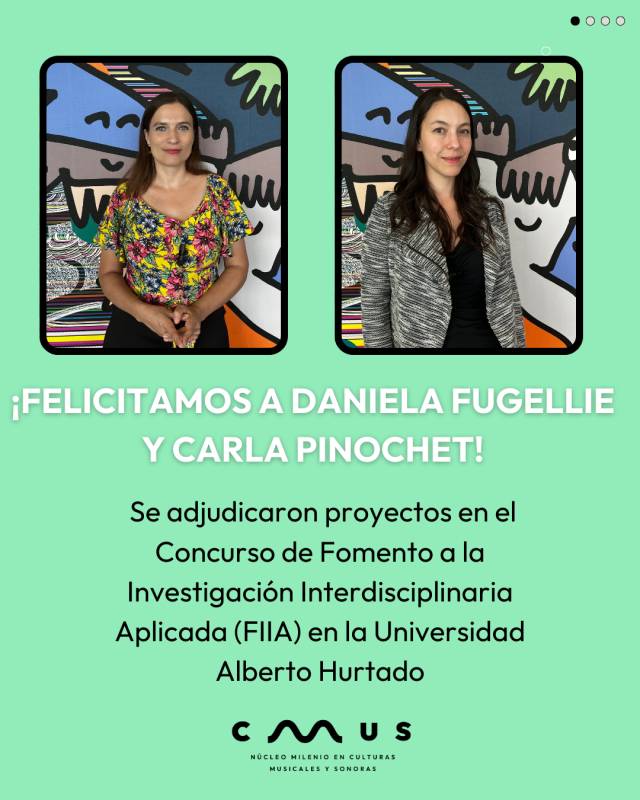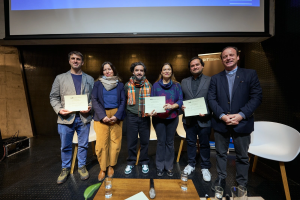
Two CMUS researchers are awarded projects in the Interdisciplinary Research Promotion Competition.
At the end of July, the results of the Alberto Hurtado University’s Applied Interdisciplinary Research Promotion Competition were announced, and two CMUS researchers were selected with outstanding projects. CMUS’ alternate director, Carla Pinochet, is part of the project “Situated Musical Knowledge: A Pilot Platform for Interdisciplinary Training,” led by researcher Jacob Rekedal. The team is completed by Mauricio Toval (Faculty of Psychology), plus Karen Valdivia and Pedro Iglesias, both from the Music Institute. Daniela Fugellie, for her part, is leading the project “Intelligent and relational system for safeguarding heritage and disseminating classical music in Chile: The case of the Santiago Municipal Theater,” together with Cristian Olivares and Cristóbal Arrieta from the Faculty of Engineering.
What is the project about?
Daniela Fugellie: We applyed with the idea of expanding the possibilities of the Database of Performers and Concerts of Scholars in Chile, which I have managed since 2019, more or less. This database currently has almost 4,000 musical events held in Chile, mostly during the 20th century. Thanks to this project, and using the Santiago Municipal Theater as a case study, which has authorized us to introduce approximately 1,000 new programs, we will incorporate AI tools and a relational/spatial representation of events and people.
Carla Pinochet: The “Situated Musical Knowledge: A Pilot Platform for Interdisciplinary Training” project involves developing an open-access digital platform aimed at music teachers and advanced music pedagogy students. The platform will gather, translate, and organize knowledge from ethnomusicology, anthropology, and social psychology into meaningful, culturally relevant, and easily integrated pedagogical materials.
What are the main objectives?
.D.F.: Through this tool, we hope to make the platform’s navigation more accessible. Some examples would be incorporating the option to chat with the platform and being able to view maps of events and people. We also seek to optimize the ability to upload events in less time, with the help of AI, since they are currently uploaded manually. At the same time, the Municipal Theater will benefit from having its concert data systematized. Finally, we believe this infrastructure could be replicated to more easily create databases that safeguard and systematize the history of events held by different types of cultural institutions, which are generally stored only in physical format and are difficult to find and consult, thus making a social contribution.
C.P.: The overall objective is to develop a pilot digital platform that integrates situated and interdisciplinary musical knowledge and transforms it into open pedagogical materials for critical music education. The specific objectives are to diagnose, through interviews, the pedagogical needs affecting music educators; to curate and translate musical knowledge into meaningful teaching materials, articulating conceptual and methodological tools from ethnomusicology, anthropology, and social psychology; and finally, to establish and validate a scalable technological foundation that will allow for expanding content and planning future developments.

The FIIA (Competition for the Promotion of Applied Interdisciplinary Research) award to Fugellie’s project was as follows: “This recognition highlights the excellence and potential impact of this initiative, aimed at linking applied knowledge with societal challenges.” Meanwhile, Carla Pinochet notes: “They told us that the project managed to integrate a truly interdisciplinary approach, bringing together three disciplines—anthropology, music, and psychology—in a horizontal and productive dialogue.”

